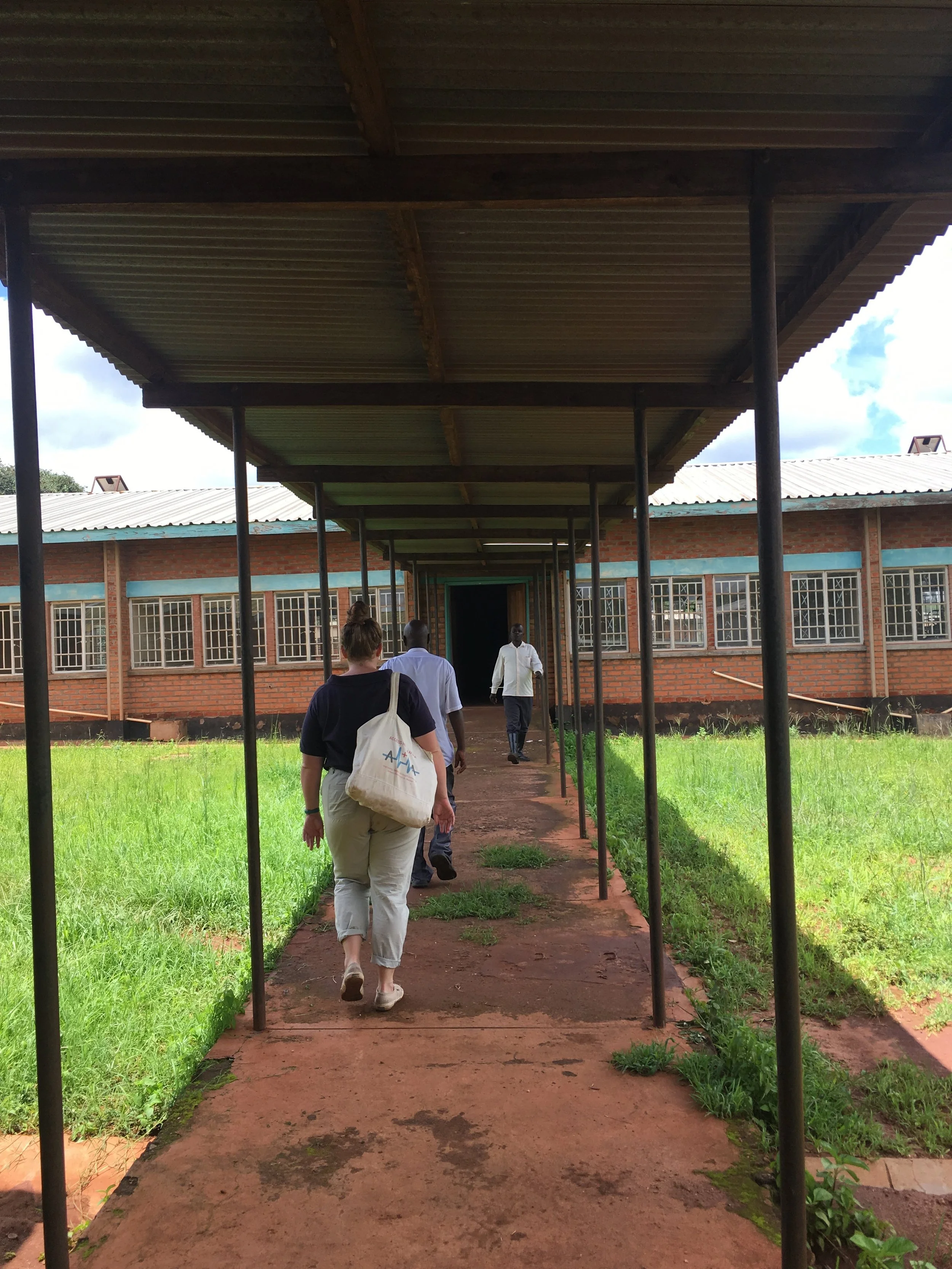Our team of three (our two Fellows, Carolyn and Angela and a Research Assistant, Gabriel) visited the last three rural health centers yesterday. The intention was for the entire team to visit all of them together, but due to rainy season, hazardous road conditions and lack of a 4x4 vehicle the plans changed.
The road to Nambuma Health Center
We set off from Lilongwe on the way to Nambuma Rural Health Center. The health centers we have visited are within about 40 KM in all directions from Kabudula Community Hospital. The road to Kabudula from Lilongwe is all paved so it is never an issue for us to get there. All the rural health centers are not off paved roads so to get there we must take dirt roads/paths. Currently it is the middle of the rainy season, so the conditions on these paths are sometimes impassable. Nambuma Health Center is about 40 KM on a dirt path off the main road. At first, it was not a big deal, we were doing fine, but the road kept getting progressively worse. After for what felt like 30 minutes, we did not see any town or health center in sight. We looked at the odometer and we had only gone 5 KM! We were concerned we would get stuck and turned back to find the main road and make a new plan.
We now needed to split up to make all our appointments with the health centers. We went to Kabudula to leave our car and organize rides on motorcycle kabazas (taxis). Angela and I went to Chilobwe Health Center together.
Tobacco leaves drying in the town where we stopped for fuel
From Kabudula, Chilobwe is about 20 KM which is SUPPOSED to take about 45 minutes, but the ride there took about 1.5 hours. Angela’s kabaza ran out of fuel about a quarter into the ride, so we had to stop off in a small village to find fuel. The village we stopped in is technically still Kabudula but a suburb or region of it. We just made friends and chatted and waited for her driver to use a borrowed bike, ride to the neighboring suburb and buy fuel.
We were back on the road after 20 minutes and about 10 minutes later my kabaza ran out of fuel! So, Angela’s driver had to go back to the village we just came from to buy more fuel for my driver. We got off and walked a little bit and found some shade while we waited. Finally, we were all back on the road. The conditions were concerning but easily passable on a motorcycle.
We finally made it to Chilobwe Health Center and met the staff there. It was a great visit, we were energized by the dedication and hard work of the team. They were so welcoming. We found out that clients who seek treatment come from a radius of up to 25 KM from Chilobwe, and there is only one clinical officer for this area. This clinical officer has worked closely with his community to set up village clinics throughout the catchment area that are ran by Health Surveillance Assistants where people can pick up medication when they are not able to reach the health center. Chilobwe Health Center does not have a maternity ward, so they cannot have deliveries there. Pregnant women from this area have to organize their own transportation to Kabudula to give birth.
On a tour of Chilobwe Health Center
We took a tour of the health center but had to cut the meeting short because we could tell the rain was coming soon. We can tell from the temperature change (it gets really hot and humid) faster than we can tell from the sky that the rain is coming. Our drivers could tell too so we booked it back to Kabudula. I bounced around like a Ping-Pong ball on the back of the motorcycle over the uneven dirt paths dodging other bikes, animals and people for 45 minutes. I couldn’t even move that night I was so sore.
All in all, it was a great experience. It highlights the fact that we transportation from rural villages that seek treatment at Kabudula and even the rural health centers is extremely difficult. We had the resources to use kabazas, so it was ‘easy’ for us to get there. This can be almost impossible for many people who live in these areas. And this is just to get to Kabudula. If someone presents with a complicated case, needs to be seen by a medical doctor in Lilongwe and if they are able to afford it, the journey could take an entire day. On top of this, many diseases are worse during the rainy season (mosquitoes are more prevalent, which means more malaria, waterborne diseases are also more common) AND it is considered ‘hungry season’ because almost everyone is subsistence farmers and are waiting for the harvest to come. We hope our work and experiences can highlight the difficulties many Malawians face in seeking healthcare.
Main entrance of Chilobwe Health Center




